Gardening enthusiasts and eco-conscious growers alike understand the value of nourishing the soil to produce bountiful, healthy vegetables. In this blog, we delve into the benefits and application methods of organic granular fertilizer, an eco-friendly solution designed to enrich your vegetable garden sustainably. We will explore how these fertilizers work, their advantages over synthetic alternatives, and offer practical tips for integrating them into your gardening routine. Whether you’re a seasoned gardener or just starting out, this guide will provide you with the knowledge to enhance your gardening practices while promoting environmental sustainability.
Introduction to organic granular fertilizers and their benefits for the garden
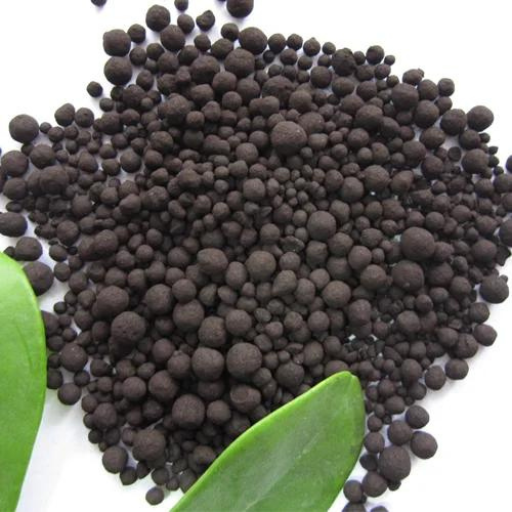
Basic Understanding of Organic Granular Fertilizer
Organic granular fertilizers comprise mostly composted plant matter, animal droppings, and finely crushed minerals that are turned into pellets for easy handling. These fertilizers break down slowly to release food to plants over a long period. Unlike synthetic ones which could cause nutrient runoff or soil degradation, they improve soil’s structure, stimulate microbial activity and increase water retention. This leads to healthier plants with greater resistance to stress conditions and establishing a sustainable garden ecosystem.
The Nutrient Profile: Nitrogen, Phosphorus, and Potassium
Organic granular fertilizers contain essential macronutrients that are crucial for plant growth basically nitrogen (N), phosphorus (P), and potassium (K).
- Nitrogen (N):essential for leafy growth; key component of chlorophyll gives green lush foliage; chicken manure, blood meal, feather meal etc.
- Phosphorus (P):crucial for root growth and flowering; helps in the conversion of solar energy into chemical energy leading to good blossoming and establishment of strong roots; bone meal, rock phosphate.
- Potassium (K):also known as potash is involved in general plant health by increasing disease resistance in them improving drought tolerance as well as overall vigor; kelp meal greensand etc.
By using these important nutrients correctly gardeners can create a balanced environment with proper nutrition for their vegetable crops resulting in healthy growth and increased yield.
Advantages Of Using Organic Materials In Your Garden
There are many benefits that organic materials confer upon your garden making it more eco-friendly. They make soil healthier by improving its structure thereby enhancing water retention capacity while at the same time promoting microbial activities taking place within it. This produces fertile soil which will support vigorous crop production. Secondly organic gardening calls for reduced amounts of chemical fertilizer or pesticides hence less dangerous run off which may pollute rivers or destroy ecosystems thirdly Many organic materials are biodegradable and renewable which makes them ecofriendly enabling the achievement of long term environmental health. Moreover, using organic materials reduces the hazards associated with exposure to poisonous chemicals thus promoting safe gardening practices. Gardeners can sustainably produce flourishing gardens that harmonize with nature by utilizing the inherent advantages of organic substances.
Choosing the Best Organic Fertilizer for Your Vegetable Garden
Things to consider when choosing fertilizer
The following are factors to consider when choosing the right organic fertilizer for your vegetable garden:
- Nutrient content: Look for fertilizers that provide a balanced mix of essential nutrients like nitrogen, phosphorus, and potassium, which best suits different vegetables. Each nutrient is very important in the growth of plants and their health.
- Ingredients’ source: Use ingredients that are derived from organically sources such as manure, compost, fish emulsion or bone meal so that the organic nature of your garden may be maintained.
- Soil condition: The soil should be tested to check its current nutrient levels as well as pH levels. A fertilizer should therefore be carefully chosen depending on its suitability with respect to soil deficiencies and pH needed to promote optimum plant growth.
- Release time: Depending on how you schedule your gardening or what your plants need at any given time, you can choose a slow-release fertiliser (which provides nutrients over an extended period) or quick release for immediate nutritional boosts.
- Application Method: It could either be granular, liquid or powder; Ensure that the type of fertilizer suits your application preference because each one has its advantages and can impact on ease of use and efficacy.
These factors will help you select an organic fertilizer that will improve productivity and good health of your vegetable garden.
Comparison between Organic Granular Fertilizer and Organic Liquid Fertilizer
Granular Fertilizer: They usually work by slowly releasing nutrients into the soil where roots take them up through osmosis for use by plants over a long period of time. Moreover they have easy methods of application since it is possible to target specific areas in addition they make improving soil structure relatively easy. Thus they work effectively providing long-term nutrition because they decompose slowly while in the ground hence making sure there is always a constant supply of nutrients from them without causing any nutrient burn.
Liquid Fertilizer: In this case, organic liquid fertilizers refer to those which can be rapidly absorbed by the plants for instant nutrient boost into their systems. When there is an urgent requirement of nutrients or extra support during flowering, fruiting stage and growth spurts, these are highly preferred because they may serve as a quick fix. Liquid fertilizers are also much easier for irrigation purposes since they can be used as foliar feeds and sprayed directly onto leaves for even faster uptake. Nevertheless, they have a shorter life span in soil compared to granular counterparts hence need more frequent applications.
In summary, granular fertilizers work best when applied repeatedly over time and improving the health of soils while liquid fertilizer provides immediate nutrient availability that is rapidly absorbed by plants thus making them useful in emergencies and situations like rapid expansion of leaves or trees with fruits. The choice depends on the current requirements of your plants and overall garden goals.
Understanding OMRI Listed Products
OMRI listed products refer to those that have been verified to meet the required standards for use in organic farming activities(Organic Materials Review Institute (OMRI)). Additionally, OMRI has set up an independent non-profit review program that assesses whether farm inputs comply with agricultural regulations by USDA National Organic Program (NOP). For a product to bear OMRI label it must pass through rigorous evaluation process that ensures it is made up allowable substances only and it can be safely used in organic production. This certification therefore enables farmers and gardeners who engage in these activities select inputs based on organic principles thereby promoting sustainable agriculture practices.
Properly Applying Organic Granular Fertilizer to Your Vegetable Garden
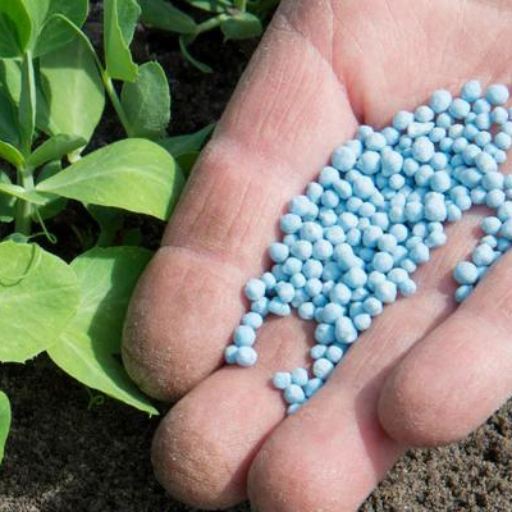
Garden Application Step-by-Step
- Soil Testing: Before applying any fertilizer it is very important to test your soil to know the present nutrient levels and pH balance. One may purchase a testing kit for the soil or send a sample to their local extension service for analysis.
- Preparation of Garden Bed: Free up the garden bed from all weeds, remnants and old plant material. After that, loosen the soil by means of a garden fork or tiller; this should be at least 6-8 inches deep so as to improve air circulation and assist root development.
- Fertilizer Measuring: Depending on your soil test results and what the specific needs of your plants are, measure out the right amount of granular fertilizer. Always consult product labels for application rates and instructions.
- Fertilizer Application: Apply evenly over the surface of soil these granules. You can use a broadcasting spreader for large areas or hand distribute around plants. This helps prevent burning plant stems and leaves through avoiding direct contact with them.
- Thoroughly Work Fertilizers into Soil :Just lightly mix-in topsoil 1-2 inches with fertilizers. This will ensure nutrients are more uniformly distributed within roots range.
- Watering: Make sure you water well after applying food, dissolve granules that release nutrients allowing them leak in root zones.
- Mulching: Place some organic mulch such as straw, compost or wood chips around your plants. Soil health is helped by maintain moisture reducing weed growths moderating temperature using a layer of mulch.
- Monitoring and Adjusting: Monitor your crops throughout their growing period by watching out for both undernourishment (yellowing leaves) or malnutrition (stunted growth). If necessary then modify your feeding schedule based on how well they do in addition to additional attention paid on soils as well as plant performance indicators which pinpoint if there might have been lack or excess of certain elements such as NPK.
These measures will help in the application of organic granular fertilizer correctly to a vegetable garden, which leads to healthy plants and abundant harvests.
When and How Often should I Fertilize?
The best timing and frequency for fertilization would depend on various factors such as the type of crops being grown, soil conditions, and the kind of fertilizer used. Generally, vegetables benefit from fertilizing at the following stages:
- Before Planting: A balanced organic fertilizer should be applied before planting to prepare the soil with essential nutrients for initial plant growth.
- During Planting: For transplants, mix a small amount of fertilizer into the planting hole to give young plants a strong start.
- Mid-Growing Season: About every three to four weeks put a side or top dressing of fertilizer around plants to replace nutrients that have been used up by growing seasons and maintain their continuous production.
However, fast-growing vegetables like lettuce and spinach may require more frequent feeding while long-season crops like tomatoes and peppers may do well with fewer applications. Always monitor plant health and soil conditions to adjust fertilization schedules as needed.
Common Mistakes
- Excessive Fertilizing: Too much fertilization can cause nutritional imbalances, root burnout or even lead to poor soils. Always follow guidelines for your particular type of fertility product when applying it on crops.
- Ignoring Soil pH: In order for them to take up nutrients properly plants must grow within certain pH levels. Failure to test and correct soil acidity may result in inadequate nutrient delivery even if you are using an appropriate amount of manure composts. Test your ground regularly so that you know when it is necessary for you to add acids or alkali materials in order to maintain its optimum range.
- Wrong Timing: Fertilizing incorrectly, like adding nutrients at the end of the growing season, results in leaching and wastage of unused nutrients into soil and water. Observe the recommended fertilization time table that matches your plants’ growth phases to ensure that nutrients are available whenever crops require them most.
Different Types of Organic Granular Fertilizers
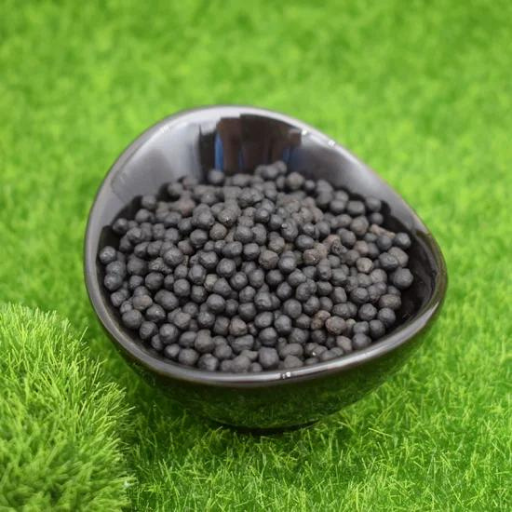
All-Round Versus Time Released Fertilizers
General-purpose fertilizers are designed to have a mixture of vital nutrients that meet the general needs of many plants. They often have equal amounts of nitrogen, phosphorous, and potassium(N-P-K) in them and are used to maintain the wellness of the entire plant. These fertilizers work for various types of garden plants so they are convenient for people who want one solution fits all type. On the other hand, their nutrients tend to be released more rapidly causing need for frequent applications in order to maintain nutrient levels over time.
Slow release fertilizers on their part are given this name because they let out nutrients gradually over a long period thus keeping a continuous food supply to plants. The slow discharge reduces leaching chances and limits applications needed per given period. In particular, slow release fertilizers can be very beneficial when growing perennials among other kind of crops since these provide consistent nutrition supporting continuous growth as well as development. The choice between an all purpose fertilizer and a slow release fertilizer depends on your specific plant’s needs as well as how much you want to invest into maintaining your lawn.
Specific Formulations For Vegetables, Fruits And Flowers
When it comes to vegetables, fruits, and flowers’ nourishment specific formulations for each kind should be used so that they grow properly with high yields.
For vegetables especially leafy greens during early growth stages, high nitrogen fertilizer is usually recommended for vegetative development support. When flowering starts until fruiting takes place an increase in phosphorus and potassium quantities in the fertilizer enhances production of good quality fruits and vegetables.
Fruits benefit from balanced fertilizers such as 10-10-10 or 12-12-12 which assures even provision of essential elements for them always whereas some fruiting plants may need extra potassium like increasing size and sweetness of its fruits.
To encourage lush blossoming in flowering varieties including roses; using a highly phosphorus fertilizer like 5-10-5 or 10-20-10 is ideal. This element stimulates flowers and roots in ornamental plants to maximize their potential.
Tailoring your fertilizer selection based on the specific nutritional needs of your plants ensures that each type receives the precise balance of nutrients necessary for healthy, productive growth.
Home Made As Opposed To Store Bought Organic Fertilizers
When deciding between homemade and store-bought organic fertilizers, it’s essential to weigh the benefits and drawbacks of each option. Homemade organic fertilizers like composts, worm casts, or manure teas are usually cheaper as well as ecofriendly. They augment microbial life within soil and enhance plant development by providing a comprehensive range of nutrients. However, making homemade fertilizer requires time, effort and knowledge to ensure nutrient balance.
On the other hand store bought organic fertilizers provide convenience and consistency. These types of fertilizers are usually developed with particular nutrient ratios designed to meet various plants’ needs and soils. They even come with detailed instructions on how they should be applied thus reducing any doubts about optimal plant nutrition. While purchasing them can be too expensive compared to home made options, their reliability along with ease of application sometimes offsets such costs.
Ultimately choosing between homemade or store-bought organic fertilizers depends on one’s gardening goals as well as resource availability and personal preferences. Combining both methods may provide the best of both worlds, promoting healthy sustainable plant growth.
Improve soil health and plant growth with organic granular fertilizers
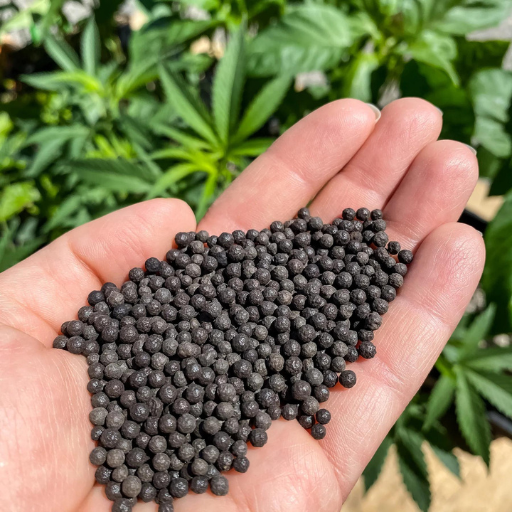
Improving soil structure and fertility
By increasing organic matter content, soil structure can be improved to create a healthier environment for plants. My focus is on adding organic granular fertilizers to enhance the texture of the soil, increase nutrient levels and help in fostering beneficial microbial activity. These types of fertilizers slowly release nutrients thereby giving steady supply of essential elements. Moreover, organic matter helps in moisture retention and aeration for more robust root systems and resilient plant growths. For my garden soil to remain fertile and productive over time, I undergo routine soil tests as well as amendment with organic granular fertilizers.
Organic Matter and Compost
An integral part of maintaining and enhancing soil health is played by organic matter which includes compost. In addition to improving the structure of the soil that aids drainage and root development when added into my garden soils, it also contains microorganisms that are useful in nutrient recycling as well as suppression of plant diseases. Also serving as a reservoir for both water and nutrients, compost minimizes watering frequency and need for fertilization purposes. By regularly applying compost, I ensure my plants get balanced supply of nutrients throughout their lives thus making them more healthy leading to increased productivity.
Advantages for Root Growth And Plant Health In The Long Term
I introduce organic granular fertilizers and composting into my gardening routine because they carry great benefits towards the long-term growth of roots besides being helpful for overall health of plants in general. Organic substances decompose slowly thus ensuring that a nonstop flow of vital elements occurs through green plants resulting in sustained growth rates particularly nitrogenous matter like protein synthesis. It’s seen that better structured soils have better retentions capabilities hence stronger root zones leading to high nutritive uptake due to its improved moisture holding capacity. A dynamic garden ecosystem arises from this enhanced microbial activities overtime that has higher levels nutrient cycling abilities as well as disease resistances. This kind of an approach does not only make my plants stronger but also makes my garden soil sustainable and productive for an extended period of time.
Frequently Asked Questions (FAQs)
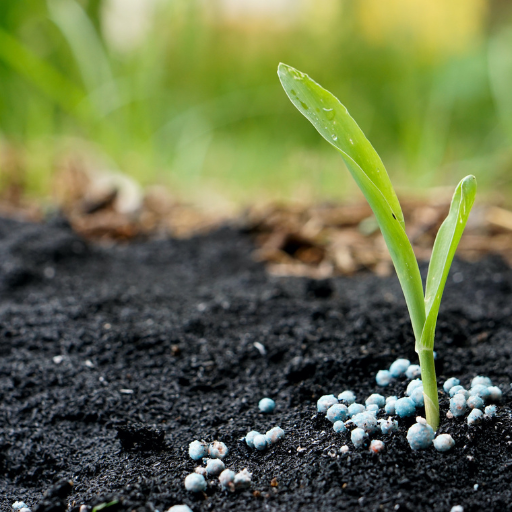
Q: What is it that makes organic granular fertilizer develop healthy plants?
A: Balanced N-P-K (nitrogen, phosphorus, and potassium) levels in the form of organic granular fertilizer are responsible for promoting healthy growth. The presence of organic ingredients ensures good soil fertility and structure which helps make certain that the plants receive nutrients.
Q: In what season should I use organic granular fertilizer?
A: The best time to apply organic granular fertilizers is spring and fall when the soil is most receptive to nutrient absorption hence enabling efficient utilization of fertilizer by plants for healthy growth.
Q: Are kitchen scraps able to be combined with organic granular fertilizer?
A: Yes, kitchen scraps can be composted together with other organics like fruit and vegetable peels as well as used alongside an organic granular fertilizers. Such a fusion aids in enriching soil fertility as well providing a wide range of different nutrients.
Q: Organic granules seem to have more benefits on which types of plants?
A: Among such crops as vegetables, fruit trees or flowering plants; they will benefit most from using this type of fertilizers. This is why the combination of balanced nutrients and organics is perfect for stimulating their proper development.
Q: How frequently do I need to apply organic granular fertilizer on my garden?
A: For optimum results during growing seasons, you should apply organic granular fertilisers every 4-6 weeks. This can ensure a continuous feeding program in your garden whereby nourishment is available whenever needed by the plant.
Q: Does it have beneficial microbes in its composition?
A: Yes, there are often beneficial microbes in many types of organic granular fertilizers which help improve fertility and general health conditions of soils. These microbes decompose matter bringing nutrients closer to plant roots thus ensuring an intensified vegetation growth.






